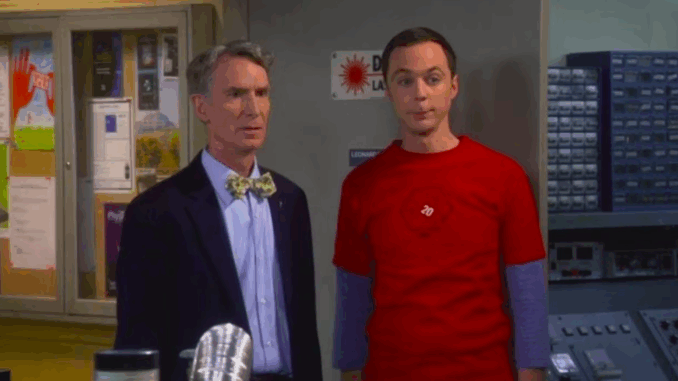
Did you know that one of the stars of “The Big Bang Theory” is an actual scientist? Prior to joining the series, Mayim Bialik obtained a PHD in neuroscience from U.C.L.A, which probably made her a useful source of information whenever co-creator Chuck Lorre and co. needed some questions answered regarding the series’ more academic elements. Not only that, but the sitcom’s creatives also hired real-life experts to ensure that no scientific inaccuracies made it onto the show, as they didn’t want to insult the physicists and other geniuses who inspired the creation of Sheldon Cooper (Jim Parsons) and his pals.
It begs the question: Just how much effort went into making sure that “The Big Bang Theory” was scientifically credible during its 12-season run? For that, the minds behind the series turned to physicist and professor David Saltzberg, who once discussed his consulting role on the series in a 2011 interview with Wired:
“Basically, as soon as the writers release any fragment of a script to the rest of the crew, I get a copy. Sometimes, I’ll get six pages of a new script. These writers know a lot of science. Sometimes, they’ll have a whole piece of science dialogue that they’ve come up with, and I just have to check it.”

Saltzberg added that he sometimes received scripts with notes dictating that the science had yet to be determined, allowing him to fill in the blanks. He also had to be present at tapings and rehearsals — just in case there were rewrites or the cast and crew needed more explanations about the headier stuff. What’s more, the show’s creators relied on the expert for some creative input, and they took his suggestions on board.
The Big Bang Theory’s science consultant offered his own ideas
Being a consultant on a hit sitcom sounds like a good gig, but if the job only entailed fact-checking science that was already in the script, it could get boring quickly. That wasn’t the case for David Saltzberg, though, who revealed to Wired that his role on “The Big Bang Theory” allowed him to offer ideas after receiving some general notes from the show’s main storytellers. In his own words:
“In general, they’ll say, ‘We’re thinking of a certain kind of episode … We’re thinking of sending the guys to the Antarctic. Can you think of what kind of experiment they might be working on?’ Then, I’ll think for a couple days or a week and send them suggestions as they come up, I basically just open another editing session next to it and, as I’m reading it, I usually give them a few options.
Granted, that isn’t the same as penning an episode, but the professor’s suggestions undoubtedly enhanced some of the science-based shenanigans that’s tickled viewers’ funny bones throughout the years. And while one could argue that certain aspects of “The Big Bang Theory” have poorly aged, the show’s commitment to science is commendable. So, the next time you tune in to watch the series’ nerdy characters and their misadventures, know that each episode can be viewed as both an entertaining comedy and a legitimate science lesson.